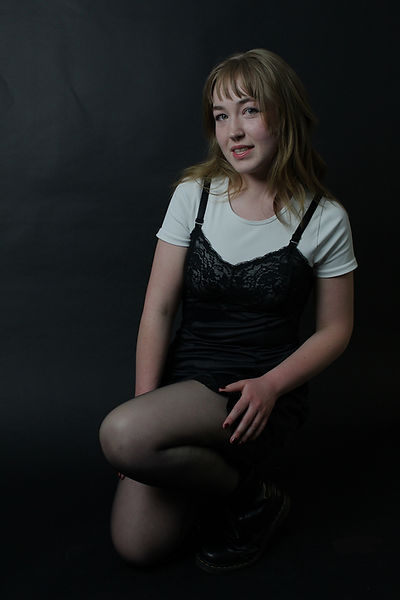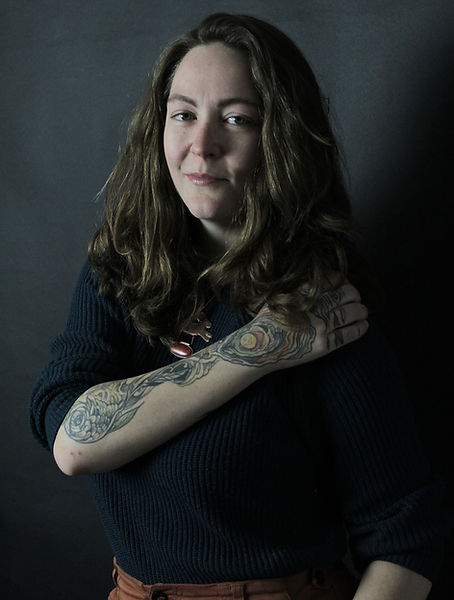Queer voice: Portraits and stories of the LGBTQIA+ Community
In Laramie, a town best known for the murder of Matthew Shepard 26 years ago, what does it mean to be Queer today?

Caitlyn Cabela: “We’re just people”
Caitlyn Cabela (she/her) is a bisexual student at UW. While she feels safe and comfortable at UW, Cabela also recognizes that some people view Queer people as a separate group from cishet people. “We’re just people,” Cabela said.
Kai Haukaas: A person who is from here, went here, loves here, wants change
Kai (he/him) is a gay man who loves the freedom and sense of community that Laramie provides, even though that isn’t the case elsewhere in the state. At the same time, he wants change. “There's a lot of things that need to change [in Wyoming] that don't change the way I feel and the way I love Wyoming because I was born and raised [here],” Haukaas said.


Peri Hennigar: Wanting to be safe in Wyoming
“I want to spend my time where I can be safe and it sucks, I really have fallen in love with the area,” Peri Hennigar (they/them) said. Hennigar, a nonbinary person, is an avid western swing dancer and it’s difficult to find this older style of swing dancing outside of Wyoming, according to them.
Sienna Hawk: Pleasantly surprised by the community
“I was pleasantly surprised by the number of events and community engagement with the LGBTQIA+ here, especially outside of just June,” Sienna Hawk, a bisexual woman (she/her) said. While Hawk is disheartened by the recent action against DEI (Diversity, Equity, and Inclusion), she has felt a strong sense of belonging and acceptance in Laramie.


Haley McKain and Phebe Pavelka: Acceptance in neutrality
Haley Mckain (she/her) and her wife, Phebe Pavelka (she/they), describe Laramie as what used to be “a wave of blue in a sea of red.” While this has shifted in Laramie, McKain and Pavelka have found acceptance in neutrality.
“We recently went on a trip where we met some members of Phoebe's extended family and it was kind of the first time in either of our families that we had been met with neutrality, about who we are as a couple,” McKain said. "We were accepted as we are and we felt safe, and in recent years, it's become more difficult to find this in the Laramie community.”
Sloan Dworian: Labels are for your convenience, not ours
“So I am trans masc, nonbinary, and queer,” Dworian (they/them) said. “I think putting labels on stuff helps us understand things, helps us comprehend a bit. But oftentimes reality is that I'm just existing. I exist, my partner exists, and we love each other.” For Dworian, labels are something people use to define them, not something that they and their partner need.


Calla Shosh (Photographer): Tired of being invisible
“It feels like Queer people are invisible until it’s convenient for others to acknowledge us,” said Calla Shosh (she/her), a bisexual person. “And unfortunately, often it’s only convenient when other’s want to make the LGBTQIA+ community the bad guys.”